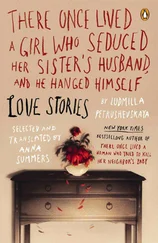
Ludmilla Petrushevskaya
There Once Lived a Woman Who Tried to Kill Her Neighbor’s Baby
Translation and introduction copyright © Keith Gessen and Anna Summers, 2009 All rights reserved
“Father” and “ Two Kingdoms ” first appeared in n + 1; “The Arm,” “Incident at Sokolniki,” and “A Mother’s Farewell” in Vice ; and “The Fountain House” in The New Yorker. The stories in this collection were published in Russian in Novy Mir, Ogonyok, Literaturnaya Gazeta and other periodicals.
IN ONE OF THE SHORT MEMOIRS SHE’S WRITTEN OVER THE years, Ludmilla Petrushevskaya described a trip she took to Lithuania in 1973. Though part of the USSR, Lithuania was a troublesome republic-wealthier and more European than the rest of the empire, it was not a place a troublesome Soviet writer could go on official business. But Petrushevskaya wanted to make a pilgrimage to Thomas Mann’s summer home (on the Baltic coast) and also meet with a literary editor, who might not know-Vilnius was far from Moscow-that her writing was banned in Russia. She invented a reason to visit a Russian city near the border, then hitchhiked the rest of the way. The year before, Petrushevskaya’s first husband had died at the age of thirty-two after a long illness; for the last six years of his life he was paralyzed.
The trip as she describes it is trying, difficult, exhilarating-but most of all it is a break. Wandering the early morning streets of Vilnius, she meets a woman named Yadviga, who takes her in. The women exchange stories. Yadviga is also a widow: She moved to the capital because her house had burned down while she was out one morning, while her daughter, a grandson, and her husband remained inside. In return, Petrushevskaya tells the widow about her husband. At the end of his life, he was so thin he looked like Jesus Christ on the cross. They cry together. Then it’s time to go. “I take the tram out of town until I reach the highway,” Petrushevskaya’s memoir concludes. “There’s not enough money for a train. Freedom. A deafening freedom after six years of hospitals and steady fighting. Ten more days of freedom before I return to my everyday life, hold in my arms my child, my savior, my treasure. Yadviga remains alone, the dry branch of a burned tree.” A month later, the Lithuanian editor sends her the handsome sum of thirty-two rubles and the Lithuanian women’s magazine where two of Petrushevskaya’s stories had appeared in translation.
In official Soviet literature, Petrushevskaya would remain out of favor for years to come. Her stories about the lives of Russian women were too dark, too direct, and too forbidding. Even her fairy tales seemed to have an edge of despair to them. (“Who’s Afraid of Ludmilla Petrushevskaya?” was the title of a 1984 essay in an emigre literary journal which asked in part why an author who was so far from explicitly political themes should be banned.) The same editor who first published Solzhenitsyn in the Soviet Union in Novy Mir in the early 1960s met with Petrushevskaya in 1968 to tell her that, in her case, there was no hope. She did, however, write plays, and these fared better-one of her most radical plays, Love, comparable in style and spirit to Harold Pinter’s early work, premiered at the Taganka Theater in 1974-but often these productions too were shut down. Petrushevskaya scraped by with television and radio scripts, occasional journalism, editing, and translations.
Finally, the Soviet Union began to fall apart. A group of writers who had never been allowed in print before began to be published in earnest, with large circulations. “The New Robinson Crusoes,” one of Petrushevskaya’s most famous stories (included in this collection), was published in Novy Mir alongside Solzhenitsyn’s Gulag Archipelago . The appearance in 1987 of her first collection, Immortal Love , which gathered her grim, realist tales of Soviet life, many of them in the form of acidic female monologues, was a major cultural event. Petrushevskaya was then forty-nine. From that point on, she was officially a major figure in Russian letters, unrivaled in the scope and diversity of her talent. She has won numerous awards and her stories have entered university curricula in Russia and in the West. Her seventieth birthday in 2008 was a government-sponsored celebration on a national scale. With the death of Solzhenitsyn, it would not be an exaggeration to say that Petrushevskaya is Russia ’s best-known living writer.
She is still also a very controversial one: Many Russian readers cannot forgive the unremitting bleakness (even if it was always mixed with profound sympathy and hope) of her early work; others cannot accept that a writer who has existed so far outside the ordinary conventions of literary life-who once produced a nearly epic-length poem called Karamzin satirizing Karamzin’s 1804 story “Poor Liza”; and who has recently been performing a one-woman cabaret while wearing an enormous hat-has achieved classic stature. The one expression that unquestionably fits her, a Russian critic wrote recently in Novy Mir, is an English one: “larger than life.”
This collection represents a selection from one vital side of Petrushevskaya’s oeuvre: Her mystical and fantastical tales. They are organized into four sections according to the cycles in which Petrushevskaya has arranged them in her Russian books. “Songs of the Eastern Slavs”-dark, surreal vignettes told in the manner of urban folk tales; “Allegories,” including two apocalyptic stories, some of Petrushevskaya’s best known, about the collapse of a social-political order; “Requiems,” an older and gentler cycle that explores human relationships under duress and after death; and, finally, “Fairy Tales”-or “real fairy tales,” as Petrushevskaya calls them. From over a hundred stories we chose pieces with a common fantastic or mystical element, leaving for future translations Petrushevskaya’s early realistic stories; her central masterpiece, the novel Time Night; and her novellas and dramatic writings. The stories in this volume were composed over the last thirty-plus years, but many of them are from the past decade. Most of them have never appeared in English.
The cycles are written in very different keys, making them difficult to classify, but a subtitle Petrushevskaya used for one of her longer fantastic tales, “The Possibilities of Menippea,” points to a common source. The ancient Greek Menippus once visited Hades, and since then the satirical genre named after him has often been said to include visits to the literal or social underworld. These visits are called nekyia, a night journey, after Homer’s term in the Odyssey. Classic nekyia describe travels to the underworld and dialogues with the dead (in the original nekyia , Odysseus drinks human blood so as to talk with the dead); modern nekyia, like Alice in Wonderland and “The Turn of the Screw,” involve extraordinary situations like near-death experiences and borderline states. Time functions differently in these tales: travels to the underworld and other parallel realities occur outside past, present, and future and may only last a few earthly seconds, like Alice ’s dream.
In this collection, nearly every story is a form of nekyia . Characters depart from physical reality under exceptional circumstances: during a heart attack, childbirth, a major psychological shock, a suicide attempt, a car accident. Under tremendous duress, they become propelled into a parallel universe, where they undergo experiences that can only be described allegorically, in the form of a parable or fairy tale.
Читать дальше













